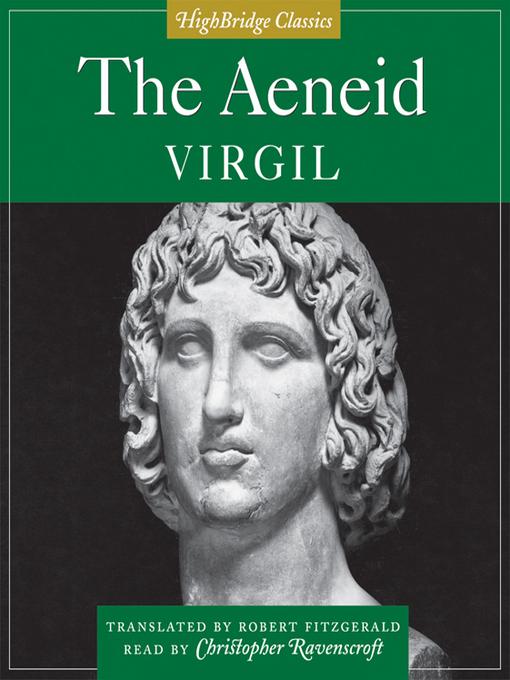
The Aeneid
کتاب های مرتبط
- اطلاعات
- نقد و بررسی
- دیدگاه کاربران
نقد و بررسی

I sing of warfare, and a man at war...From the heart-lifting trumpet fanfare and majestic opening statement, Robert Fitzgerald's stirring, poetic translation of Virgil's great epic depicting the fall of Troy and the founding of the Roman Empire captures the reader's imagination and heart. The characters and situations are so many that HighBridge includes a glossary; however, it's rarely needed. Christopher Ravenscroft carries the reader through the dense, image-laden poetry with power and finesse, separating images and giving each character an indelible impression. The narrative segments are recited in an intense voice with a breathy, "close-to-the mike" quality; these contrast to scenes filled with human drama, such as the opening of the Trojan Horse and the sacking of Troy, the grief and suicide of Dido, and the final battle between Aeneas and Turnus. Here Ravenscroft seems to become the crafty Greek, the despairing lover, the valiant warrior or the jealous heir to the Throne of Latinus. This is a long way from student struggles with " Arma virumque cano..." Don't miss it! L.R.S. Winner of AUDIOFILE Earphones Award (c)AudioFile, Portland, Maine

Starred review from September 18, 2006
Princeton scholar Fagles follows up his celebrated Iliad
and Odyssey
with a new, fast-moving, readable rendition of the national epic of ancient Rome. Virgil's long-renowned narrative follows the Trojan warrior Aeneas as he carries his family from his besieged, fallen home, stops in Carthage for a doomed love affair, visits the underworld and founds in Italy, through difficult combat, the settlements that will become, first the Roman republic, and then the empire Virgil knew. Recent translators (such as Allen Mandelbaum) put Virgil's meters into English blank verse. Fagles chooses to forgo meter entirely, which lets him stay literal when he wishes, and grow eloquent when he wants: "Aeneas flies ahead, spurring his dark ranks on and storming/ over the open fields like a cloudburst wiping out the sun." A substantial preface from the eminent classicist Bernard Knox discusses Virgil's place in history, while Fagles himself appends a postscript and notes. Scholars still debate whether Virgil supported or critiqued the empire's expansion; Aeneas' story might prompt new reflection now, when Americans are already thinking about international conflict and the unexpected costs of war.

Charlton Griffin reads Rome's national epic, depicting Aeneas's wanderings from Troy to Italy and the beginnings of the Roman people, in his grand, orotund manner, befitting the poem, though with some characteristically odd pronunciations. He is both agile and sensitive enough, however, to clearly differentiate voices and moods. Each book starts with a helpful summary (though the general introduction is too long), sound effects, and music; the sound effects are dispensable, the music sometimes atmospheric, sometimes just odd. Close attention will reward the listener with a solid presentation of a classic. Despite Griffin's noble efforts, Virgil's catalogues of names, places, and Roman history may send listeners' minds wandering far from the Mediterranean. W.M. (c) AudioFile 2006, Portland, Maine

























دیدگاه کاربران